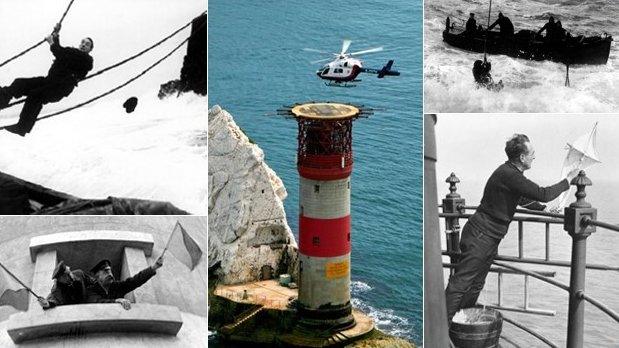Lighthouse life: 'We are so lucky to be doing this job'
- Published
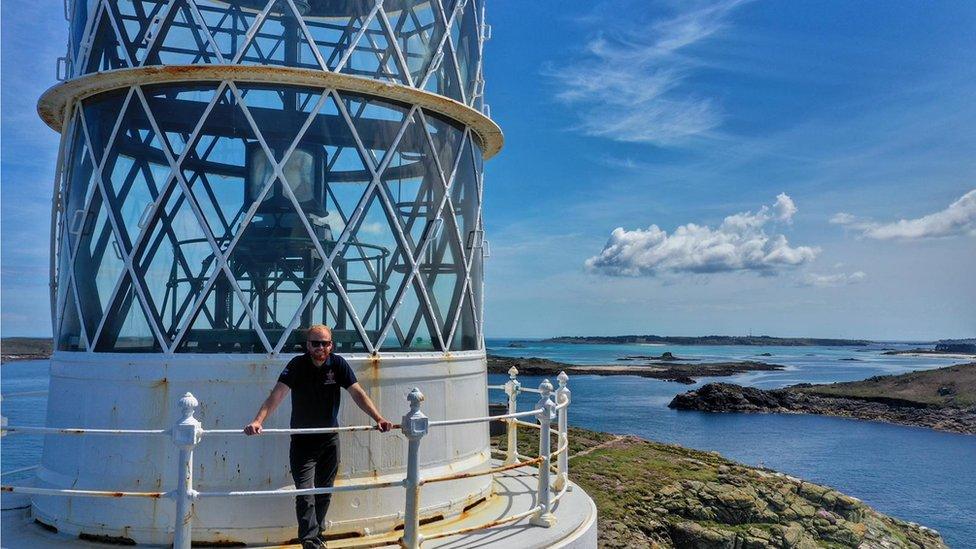
Scott Tacchi has been a lighthouse technician for the past 18 months
There are more than 250 lighthouses still in use across the UK, whose shining beams of light play a vital role in protecting shipping. With the days of the lighthouse keeper long gone, who looks after them?
When Scott Tacchi spotted an advertisement for a job as a lighthouse technician, he was intrigued enough to apply and then delighted to land the post.
The 30-year-old from Truro in Cornwall has spent the past 18 months helping to maintain the nation's lighthouses, and documenting a job, external that often provides spectacular views.
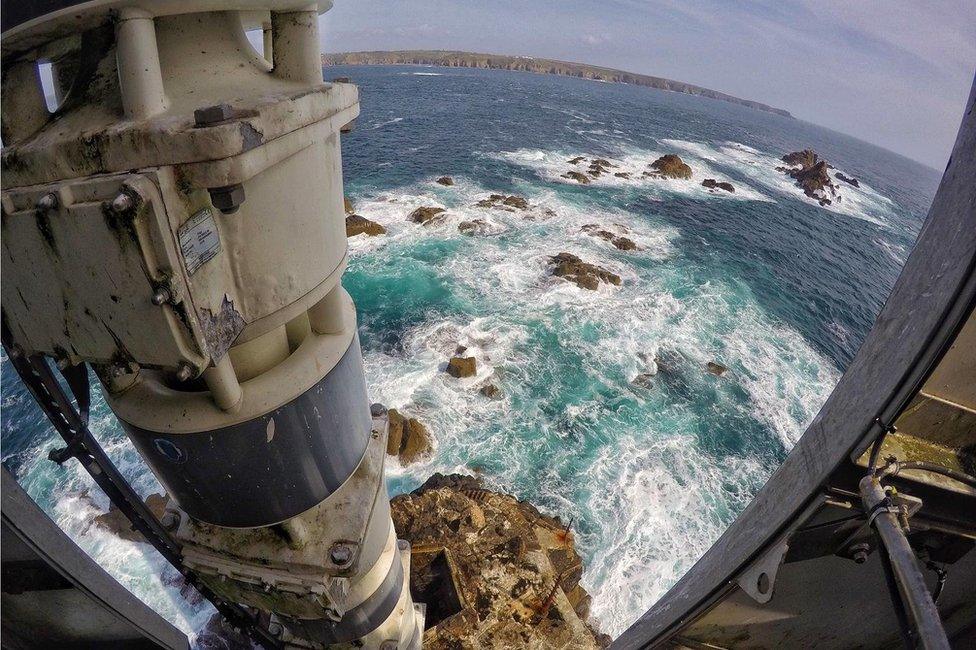
Scott is employed by Trinity House - set up by Royal Charter in 1514 - which is the General Lighthouse Authority for England, Wales, the Channel Islands and Gibraltar
"I was working as a mechanic but I wanted more variety, and to see more places," explains Scott. "I'm old for an apprentice, but young for a lighthouse technician - I absolutely love it."
Technicians can spend weeks living on site, often in bad weather, but this doesn't deter him.
"We are so lucky to be doing this job and see things that nobody else sees - I just wanted to show people."
Bishop Rock Lighthouse
Location: four miles west of the Isles of Scilly, 28 miles off Cornwall
Built: 1858
Height: 49m (161ft)
Bishop Rock is the world's smallest island with a building on it, according to Guinness World Records
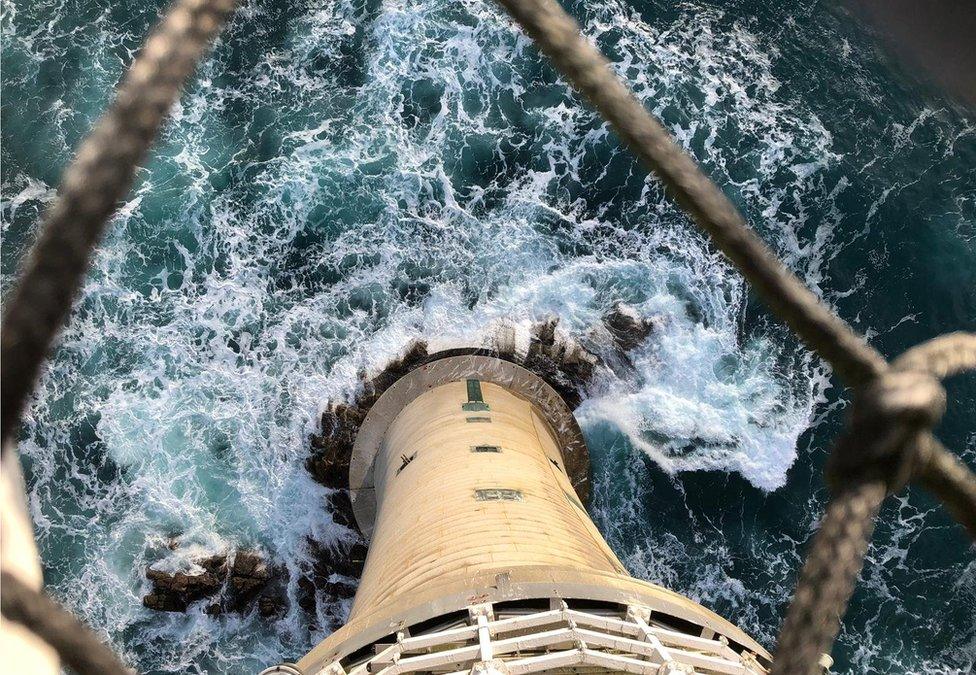
Bishop Rock Lightouse stands 49m (161ft) tall
"Changing the nets on the helidecks (helicopter landing platforms) is one of the most exciting jobs.
"It is incredible, but it's also scary sometimes. It does make you think... how much longer will these structures withstand that kind of force?
"We have regular surveys carried out, and apparently they are exactly as they were built and are performing exactly the way they were designed.
"The engineering that went into these, considering the technology they had, is just incredible."
Longships Lighthouse
Location: two miles off Land's End, Cornwall
Built: 1875 (current tower)
Tower height: 35m (115ft)
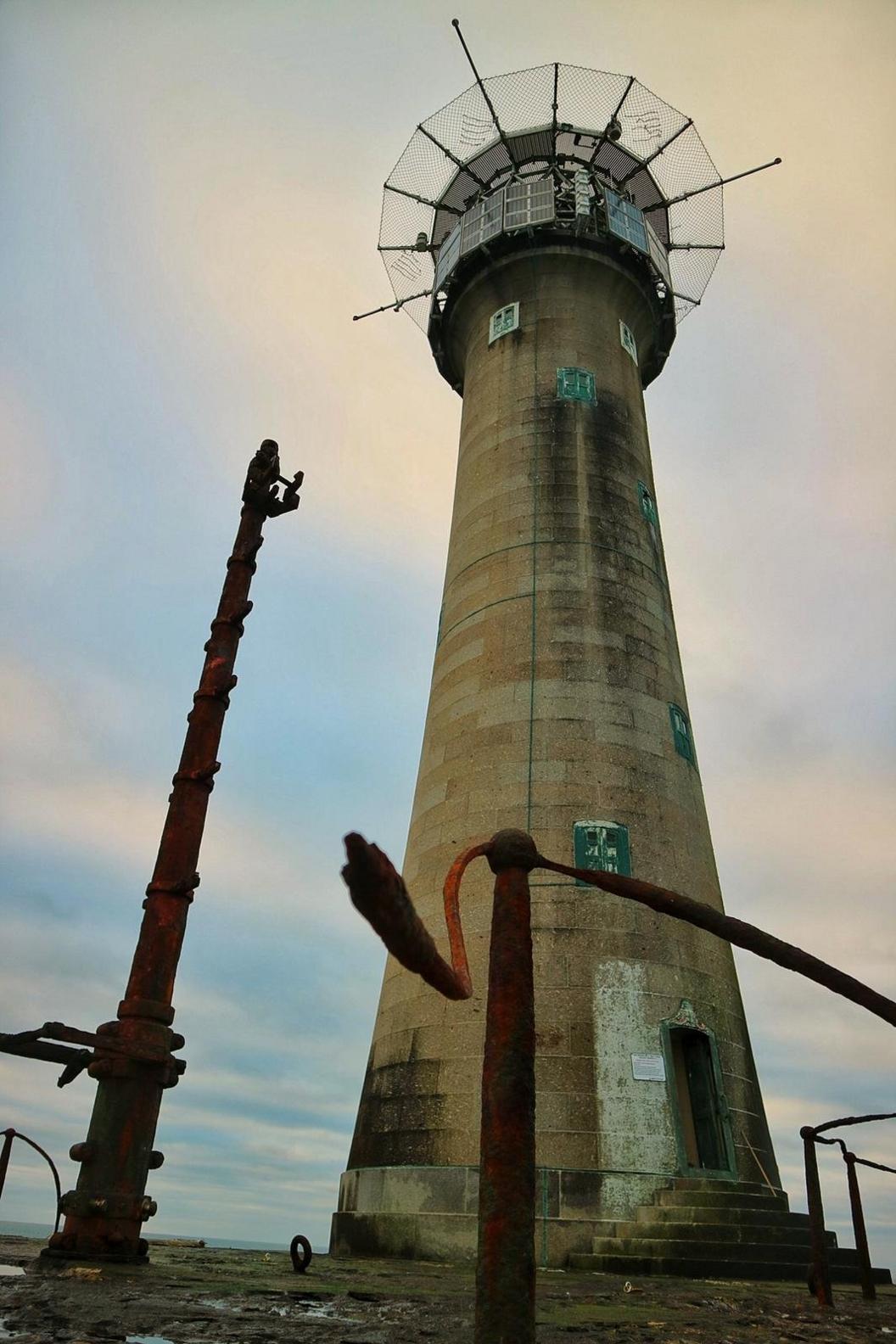

"This shows Longships from the landing.
"It is quite rare that you get to come outside as the landing is usually covered by the swell."
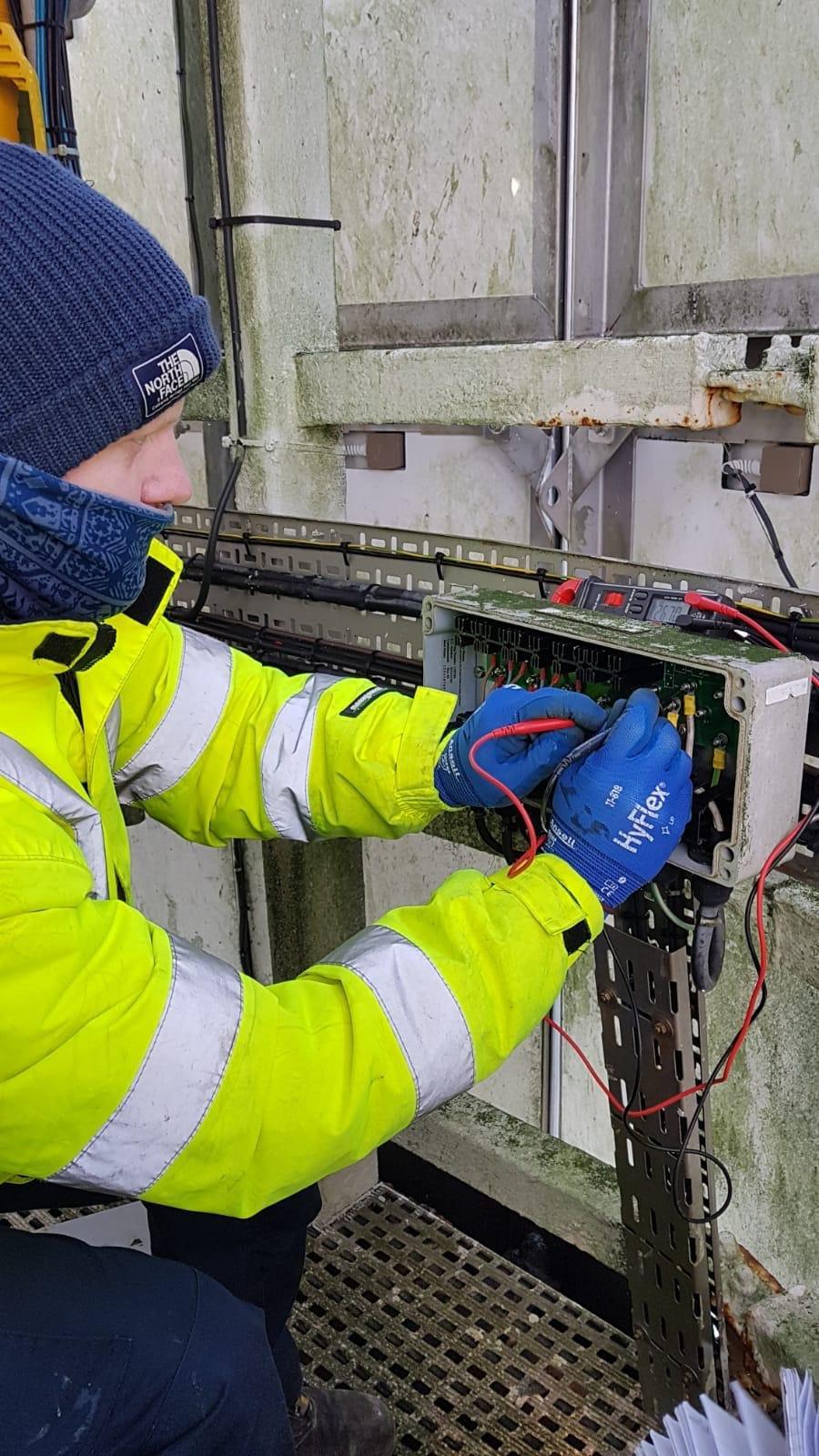
Scott says there is always electrical work to be done

"There is always stuff that needs doing because the lighthouse keepers aren't there any more and they would constantly keep on top of everything.
"It could be a smashed pane of glass or a rusty plug socket that needs some TLC, but there are always things to do."
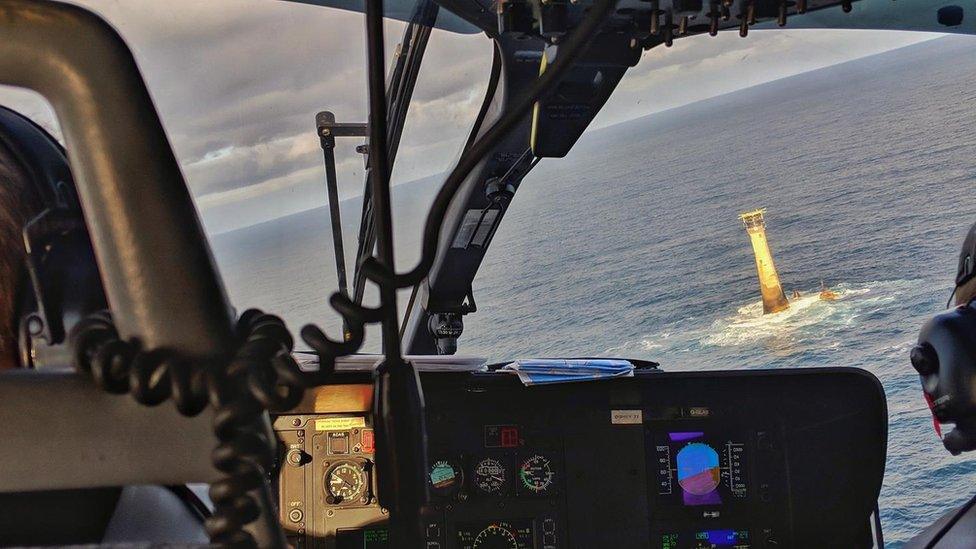
Longships has to be accessed by helicopter
"Each lighthouse has a spare set of panes. They are always diamond shaped on the offshore ones.
"Serious jobs are planned long in advance."
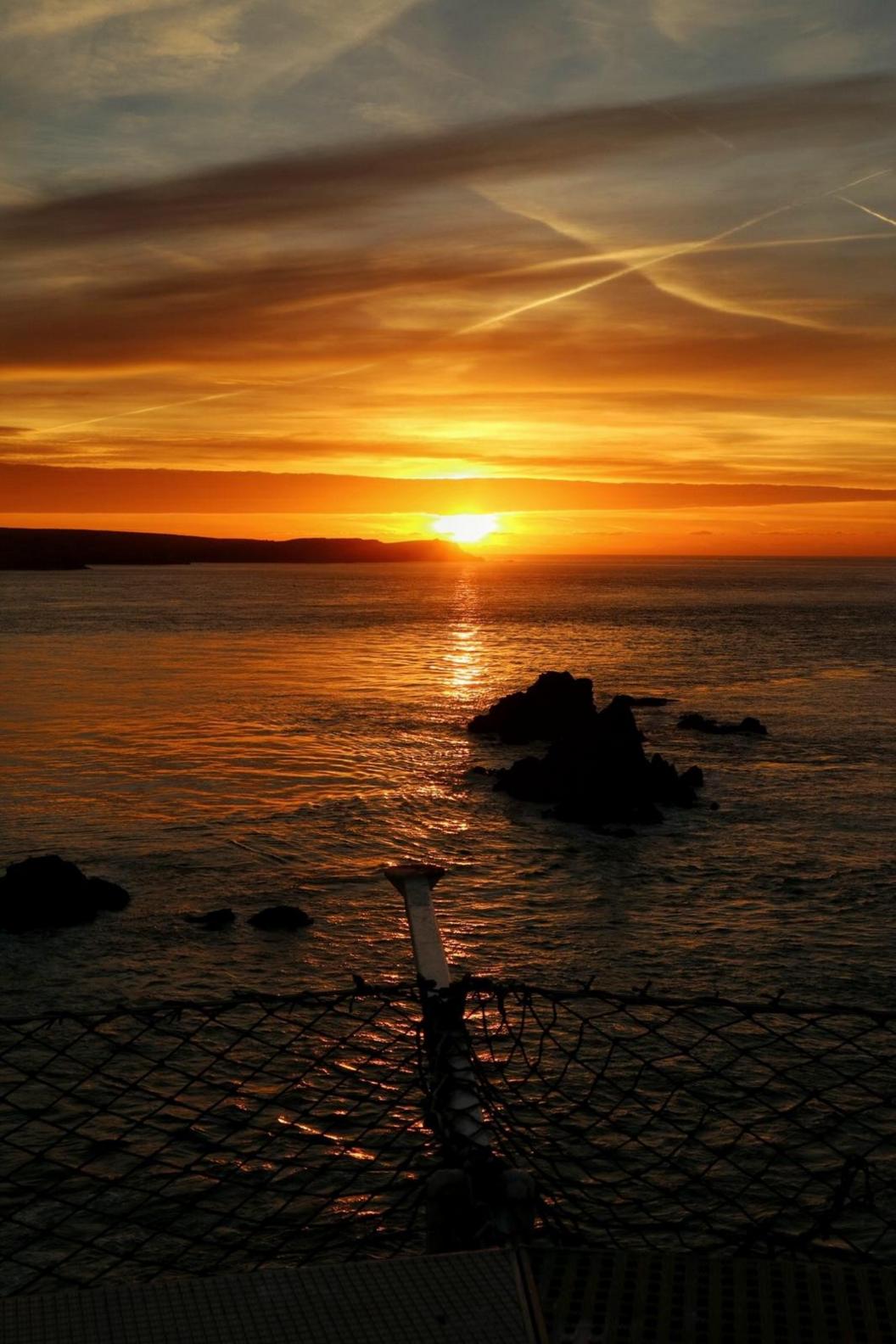

"This was a stunning morning on the Longships helideck in January.
"I was sat up here watching the sun come up whilst eating some pain au chocolat and a pod of dolphins swam past."
Lundy North Lighthouse
Location: Lundy Island, Bristol Channel, 12 miles off Devon
Built: 1897
Height: 17m (56ft)
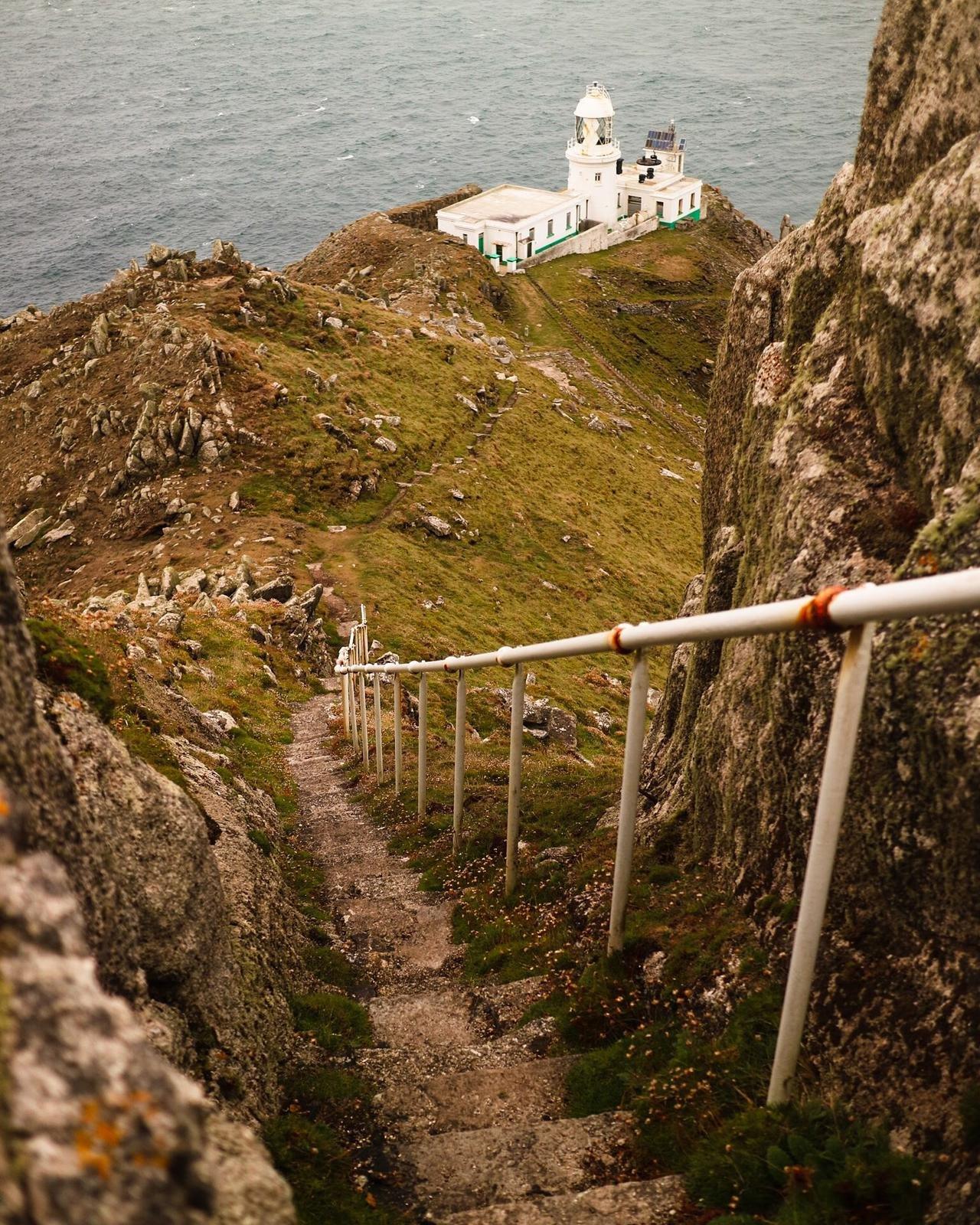

"Lundy Island has no vehicles, just Land Rovers which the rangers use to carry out their work there and transport passengers from the ferry up to the accommodation.
"If we are lucky we can get a lift [with them] to the top of the steps which lead you down to the North Lighthouse.
"Unfortunately this isn't always the case. We sometimes have to walk 3.5 miles with all of our gear across the harsh island which can take 2.5 hours.
"It's a tricky one to get to as it's usually by foot, so you have to lug all your equipment down these steps."
Sark Lighthouse
Location: Sark, Channel Islands
Built: 1913
Height: 16m (52ft)
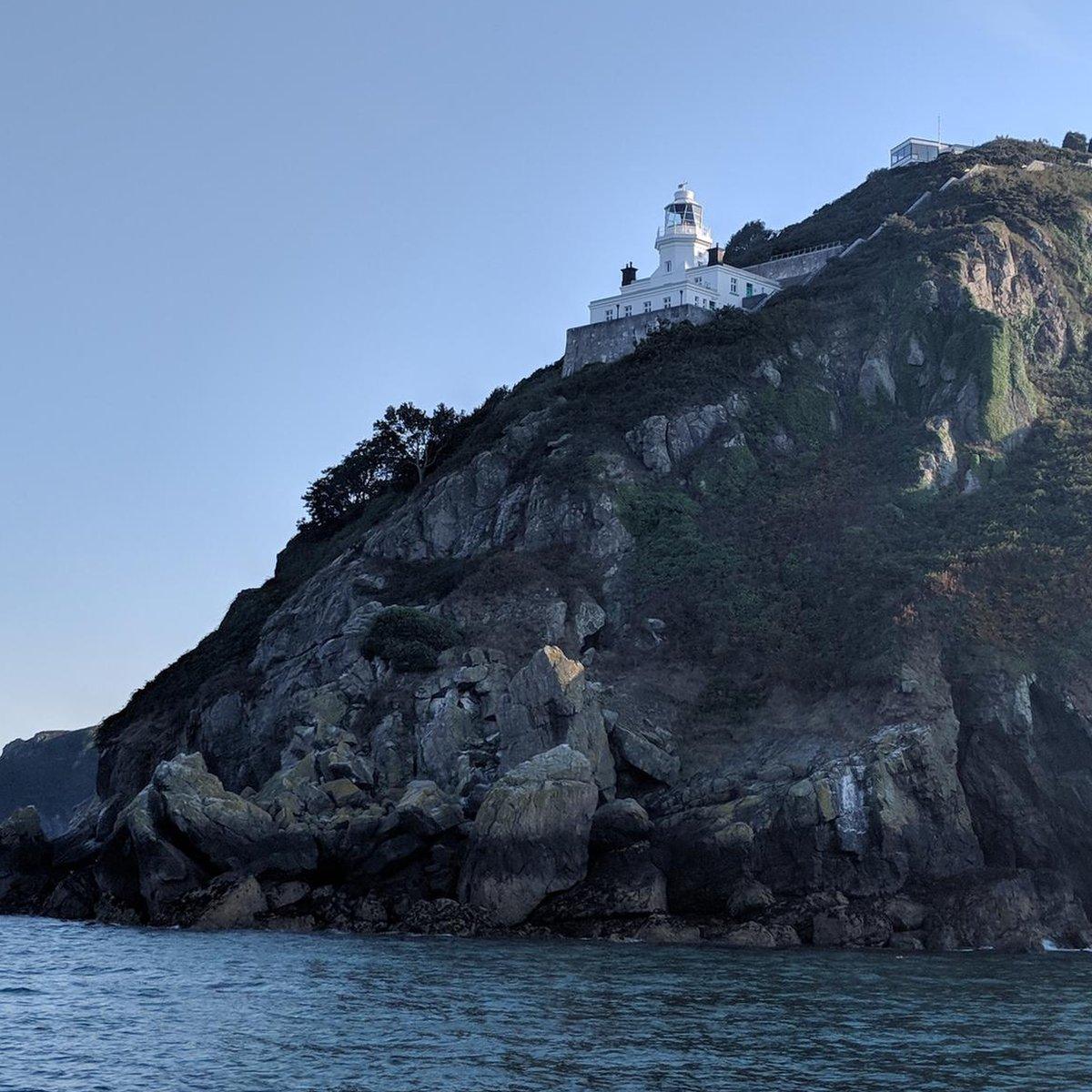

"Sark Lighthouse has been modernised in recent years. The old optic has gone and it's been replaced with these LED lamps.
"These are very efficient - during a recent visit over a 24-hour period we found that the whole lighthouse with all the latest technology installed uses no more power than a single 100-watt lightbulb."
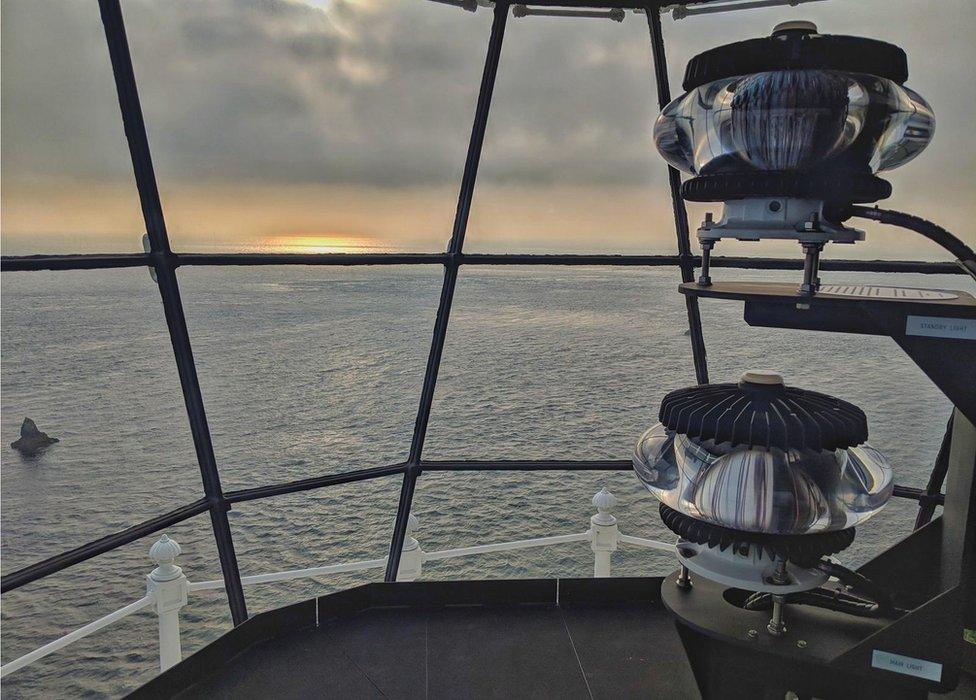
Lizard Lighthouse
Location: southernmost point of mainland UK, Cornwall
Built: 1751
Height: 19m (62ft)
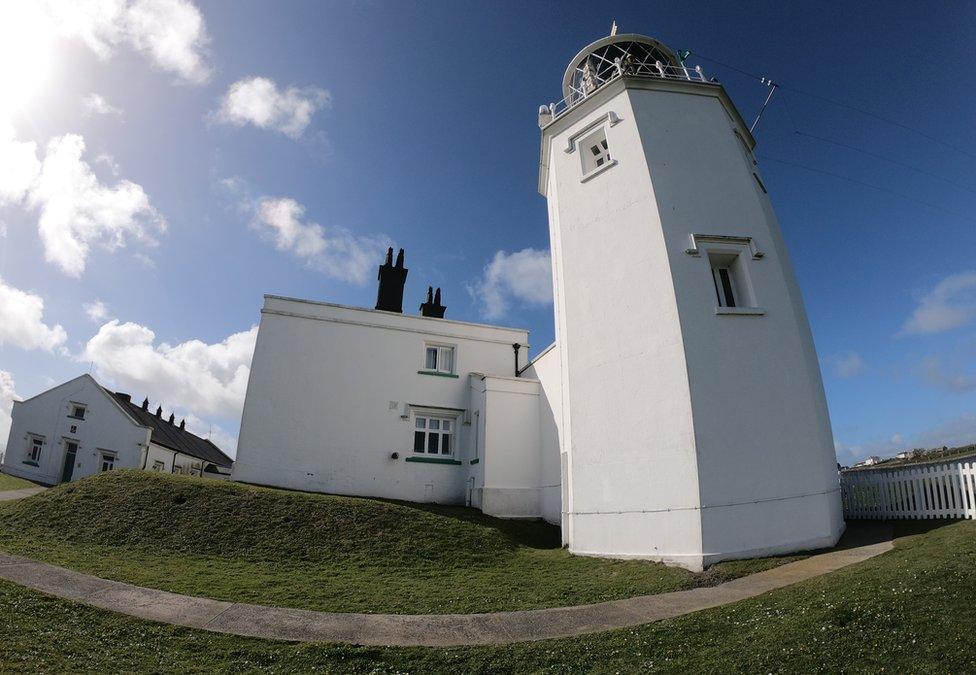
Lizard Lighthouse was built by private entrepreneur Thomas Fonnereau in 1751, marking the most southerly point of mainland Britain
"This is inside an old-style optic which floats on a bath of mercury that is still in action at the Lizard Lighthouse.
"So when the sun goes down and the light fades, a sensor will turn on the lamp.
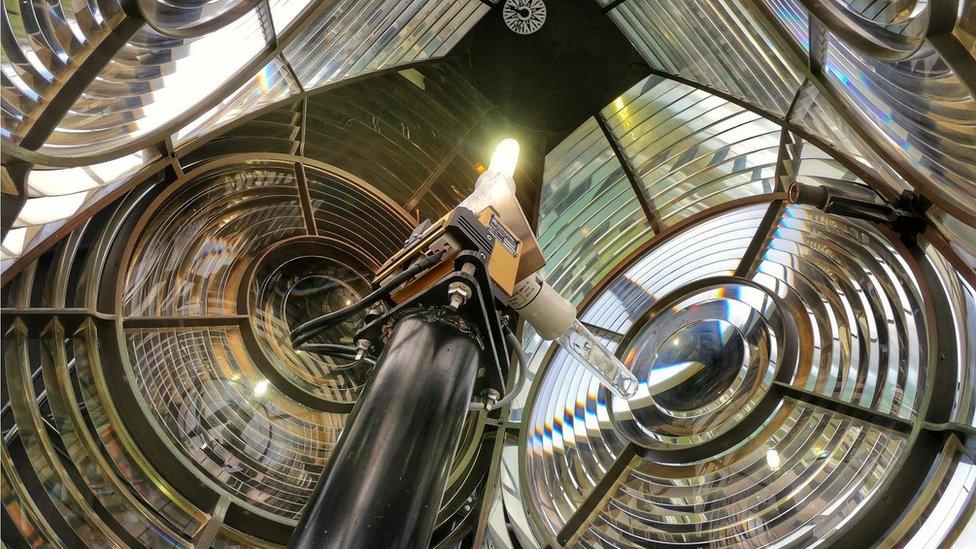
"This stays on until first light. The optic rotates around, giving that sweeping beam effect.
"Each lighthouse has a specific flash pattern so that mariners can detect which one they are looking at from a distance."
Round Island Lighthouse
Location: northern point of Isles of Scilly
Built: 1887
Height: 19m (62ft)
Sunset from Round Island Lighthouse
"THV Galatea is one of the three vessels that operates for Trinity House, which runs the 60 or so lighthouses in England, Wales and the Channel Islands, and came to assist us while we were on Round Island.
"They navigate all over the Trinity House estate and service buoys, mark wrecks and new dangers and do hydrographic surveys.
"They also provide support to the lighthouses by bringing fuel and water along side so the helicopters flying hours are reduced."
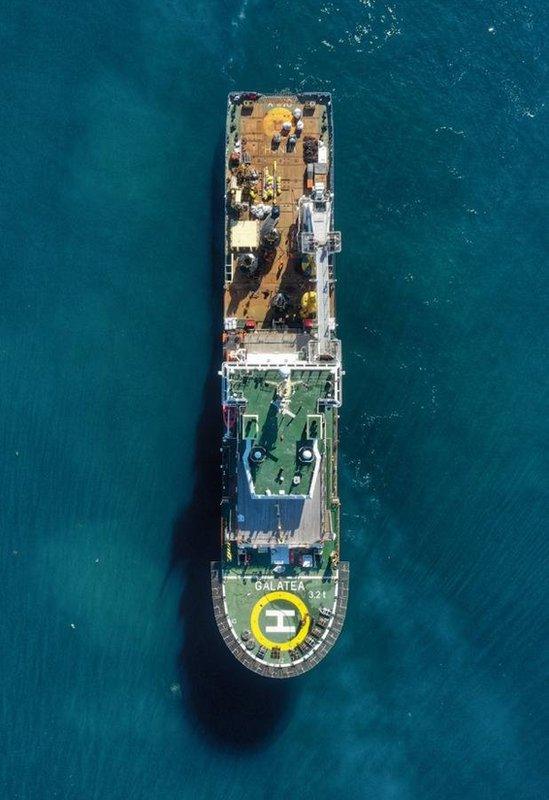
The Galatea serves lighthouses by bringing supplies

"Round Island used to have a huge optic as it covers a lot of sea so needs to shine a long way, but now it has a tiny electronic one.
"In a way it is sad to see the old one go but it is a balance between keeping the original in place and using new technology, and it is amazing to see these things working."

You might also be interested in

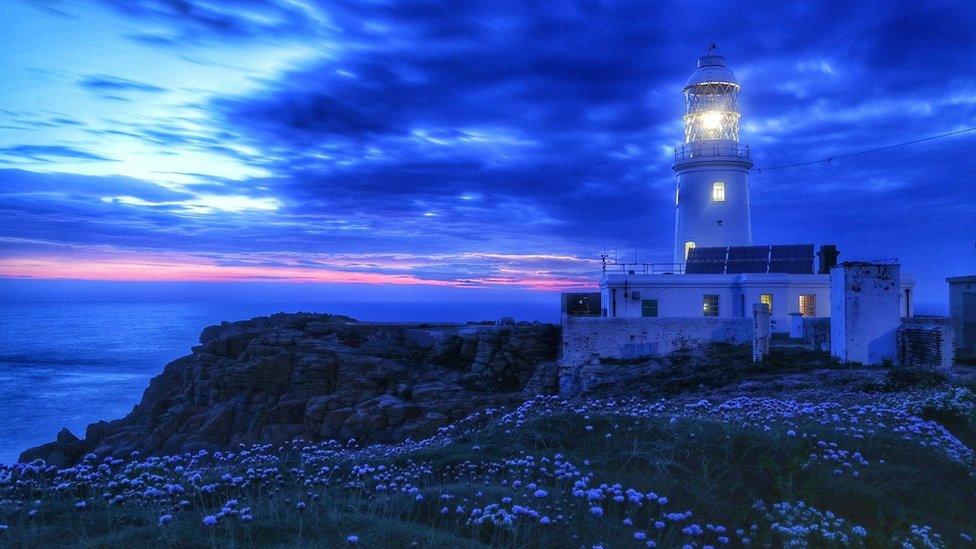
The old Round Island optic has been swapped out
Pictures subject to copyright.
- Published24 October 2017
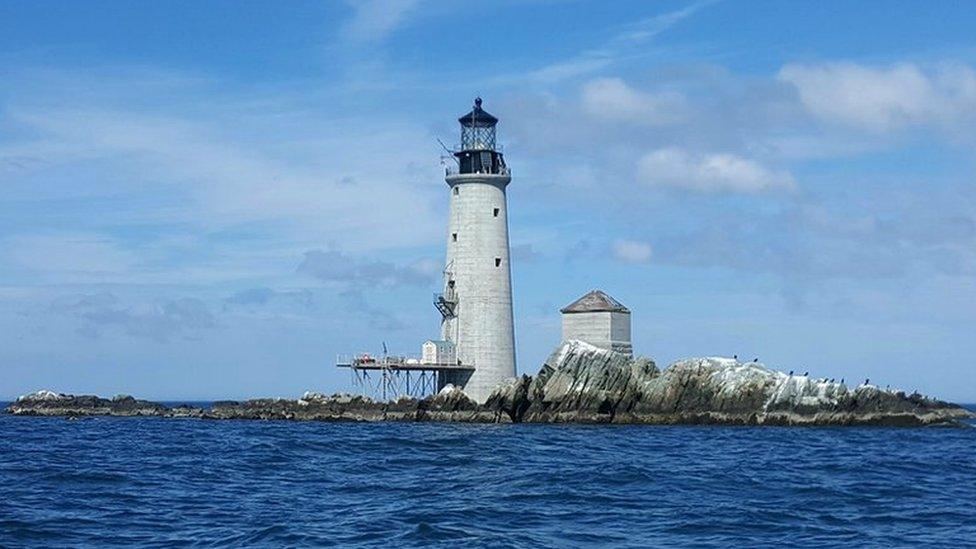
- Published29 December 2014
